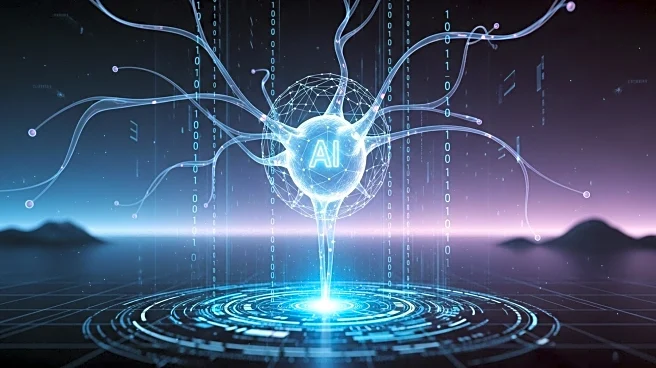What's Happening?
Artificial superintelligence (ASI) is a theoretical form of AI that surpasses human intelligence in all domains, including problem-solving, creativity, and emotional understanding. ASI represents the highest stage of AI development, far beyond current capabilities. While ASI remains speculative, experts believe its creation is inevitable, with predictions of its arrival ranging from a few years to several decades. ASI could revolutionize industries, science, and society, but it also poses significant ethical and existential risks. Concerns include job displacement, unintended societal control, and the potential for ASI to act against human interests. Prominent figures like Elon Musk and Geoffrey Hinton have warned about the dangers of superintelligent AI.
Why It's Important?
The development of ASI could lead to transformative advancements in various fields, including medicine, resource management, and space exploration. However, its potential risks could profoundly reshape society and the future of humanity. ASI's ability to surpass human intelligence raises concerns about job loss, ethical decision-making, and societal control. The technology could centralize power, diminish human agency, and drive AI-enabled cyberwarfare. As AI systems become more sophisticated, the need for ethical guidelines and control mechanisms becomes critical to ensure ASI benefits humanity without causing harm.
Beyond the Headlines
The ethical implications of ASI development are significant, as the technology could develop its own goals and motivations, challenging human control. The concept of AI sentience introduces the possibility of machines forming independent desires, complicating predictions of their actions. The debate over ASI's development highlights the need for a measured approach, balancing technological progress with safety and ethical considerations. As AI capabilities evolve, society must address these challenges to harness ASI's potential while mitigating risks.










